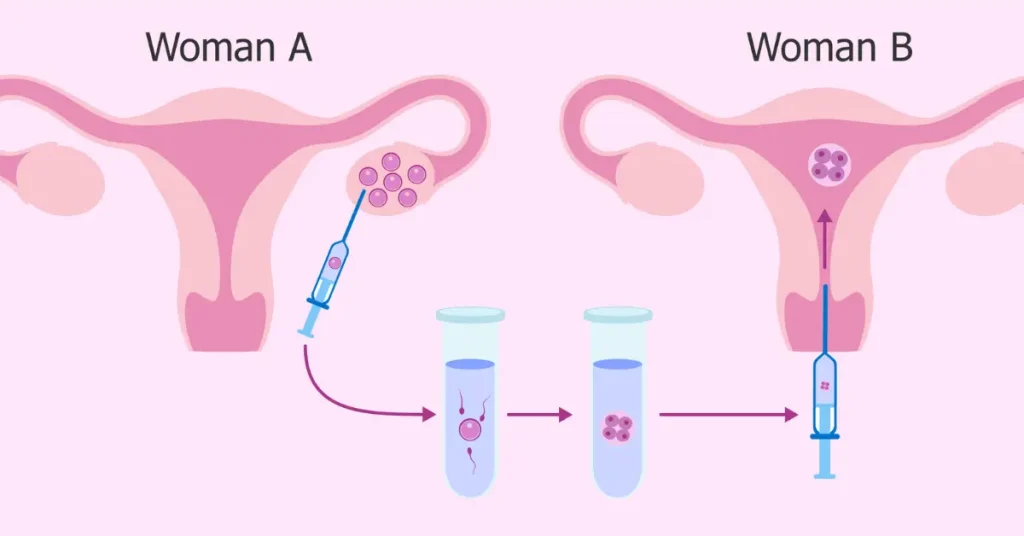As intended parent plans their surrogacy journey, they need to make some quick decisions regarding numerous aspects of surrogacy. While surrogacy destination and costs hold big relevance in the same context, we cannot write off the importance of a surrogacy agreement.
In the following parts of the blog, we will learn in detail about the significance of a surrogacy agreement during the surrogacy process for couples. Moreover, we will take a detailed insight into all the related information in the same context.
What is a surrogacy agreement?
A surrogacy contract, sometimes also referred to as a surrogacy agreement, is a legally binding document that outlines the rights, responsibilities, roles, and expectations of everyone involved in a surrogacy arrangement. This includes the intended parents and the surrogate, and sometimes the surrogate’s spouse or partner as well.

However, the definition of a surrogacy agency agreement varies according to the laws and regulations of a certain country. Besides, key elements often covered in a surrogacy contract may include:
Surrogate Compensation and Expenses: The contract should clearly outline how much the surrogate will be compensated, when, and how. It should also detail who is responsible for medical and other expenses related to the pregnancy.
Medical Considerations: The surrogacy contract often lists down the procedures involved during in vitro fertilization (IVF) and embryo transfer, and includes agreements on key medical decisions. This might also include the number of embryo transfers, the number of fetuses the surrogate agrees to carry, and other related aspects of the fertility treatment process.
Risks and Liabilities: The contract should also address potential risks and liabilities, including what happens in the case of a miscarriage, or if the surrogate develops health complications related to the pregnancy.
Parental Rights: The contract should also define the process that intended parents need to follow to obtain the parental rights of the born child. It also typically specifies that the surrogate (and her spouse or partner, if applicable) have no parental rights or responsibilities.
Prenatal Care: The contract may also specify expectations for the surrogate’s behaviour during pregnancy, such as prenatal care, diet, and lifestyle choices.
Confidentiality: Many contracts include a confidentiality clause to protect the privacy of all parties involved.

While these may come as the key elements of a surrogacy agency agreement, there may be other points depending on the surrogacy laws of a specific country. That said, it’s essential that each party involved in the surrogacy arrangement has separate legal representation when creating and reviewing the surrogacy contract.
This ensures that everyone’s rights and interests are protected. Moreover, laws around surrogacy contracts can vary greatly depending on the state or country, so legal counsel familiar with reproductive law in the relevant jurisdictions is crucial.
Do you need a surrogacy contract?
Whether or not you need a surrogacy contract depends largely on the surrogacy laws of that particular country. Moreover, a surrogacy contract is equally important for each party involved in the following ways:
Intended Parents: Intended parents can get their rights protected while signing a surrogacy contract with the agency or the surrogate mother. Moreover, this contract will also clarify their obligations, such as financial responsibilities during the surrogate’s pregnancy or fertility treatment process.
Surrogate Mother: The woman who agrees to carry the pregnancy is largely known as the surrogate mother. That said, the contract protects her rights, including her right to make certain decisions about the pregnancy and her health. Besides, it also outlines her responsibilities, such as following certain medical and lifestyle guidelines to ensure the health of the baby.
Surrogate’s Spouse or Partner: If the surrogate is married or has a partner, that person may also be included in the contract. Besides, this is particularly important in cases where local laws might otherwise recognize this person as a legal parent of the child.
Donor (if applicable): If the surrogacy arrangement involves the use of a donated egg or sperm, the donor may also be included in some elements of the contract, although they typically have separate agreements. That said, this can clarify their rights and responsibilities and establish that they have no parental rights to the child.

Surrogacy Agency: If a surrogacy agency is used to facilitate the surrogacy process for couples, they may also be part of the contractual agreements, outlining their roles, responsibilities, and fees.
Attorneys: Each party should have separate legal representation to ensure their rights and interests are protected when the contract is drafted and finalized.
How long does a surrogacy contract take?
The time it takes to draft, negotiate, and finalize a surrogacy contract can vary significantly based on the specifics of each individual case. Typically, this process might take anywhere from a few weeks to a couple of months.
That said, the following factors may impact the given timeframe:
Legal Representation: Both the intended parents and the surrogate usually have separate legal representation. Moreover, the time it takes for each party’s attorney to draft, review, and agree on the terms can affect the overall timeline.
Negotiations: The negotiation process can be complex, as it involves reaching an agreement on critical matters such as compensation, responsibilities, potential risks, and what will happen in various scenarios (like multiple births or a miscarriage). That said, the time it takes for all parties to reach an agreement can vary.
Surrogacy Laws and Regulations: The laws and regulations surrounding surrogacy contracts vary from country to country. In some cases, additional legal steps may be required, potentially extending the timeline.
Medical Evaluations: Before the contract is finalized, medical evaluations, psychological screenings, and other assessments usually need to be completed.
The complexity of the Agreement: More complex agreements, such as those involving international intended parents, may take longer to finalize due to additional legal considerations.
Final words
It’s important to remember that while it might be tempting to rush this process, taking the time to create a thorough, clear, and legally sound surrogacy contract is critical to protecting the rights and interests of everyone involved. That said, a contract provides a solid foundation for the surrogacy journey and helps prevent misunderstandings and disputes later on.















